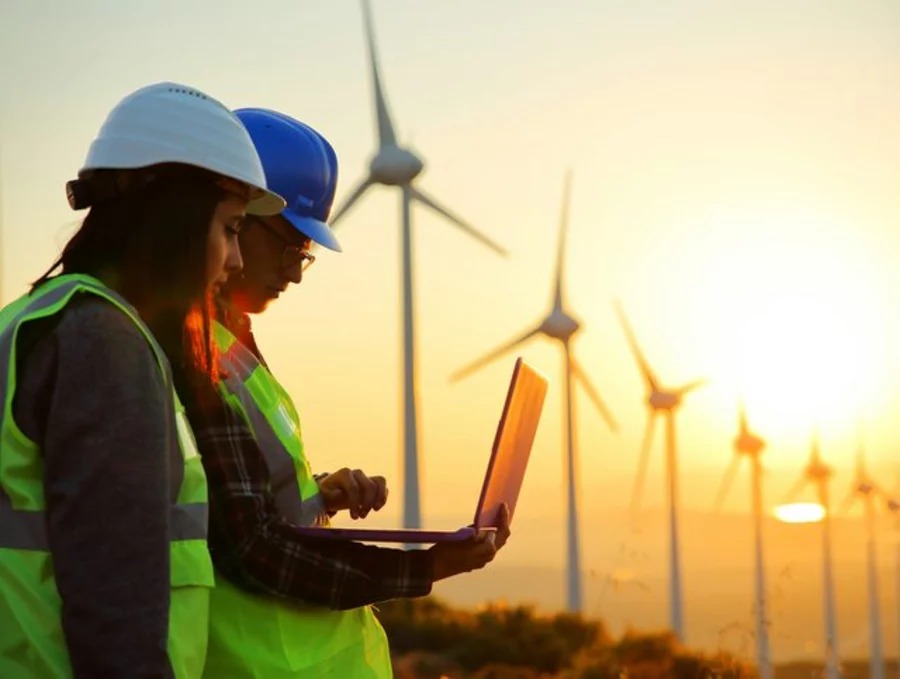BAKU, Azerbaijan, April 25. Azerbaijan has long been a key player in global energy security as a traditional energy exporter. In recent years, the country has taken significant steps to adapt to the shifting global energy landscape, where nations are increasingly focused on transitioning to new, sustainable energy sources. As part of this shift, Azerbaijan has adopted a new green energy strategy aimed at achieving both national and international energy transition goals.
Research has revealed that Azerbaijan possesses substantial potential in the renewable energy sector. However, to fully harness this potential, the country needs to collaborate with experienced international companies and experts. In this regard, Germany’s expertise in the renewable energy sector stands out. Since the 1990s, Germany has been a pioneer in promoting and developing renewable energy sources. According to recent data, in the first half of 2024, green energy made up 61.5% of Germany’s total energy production, a significant increase from 50.2% in 2020. This upward trend reflects the success of Germany’s transition strategy.
By 2030, Germany plans to source at least 80% of its electricity from renewable sources, highlighting its leadership in the green energy sector. Germany’s renewable energy is largely derived from wind power, with the North Sea playing a crucial role in providing favorable conditions for wind farms.
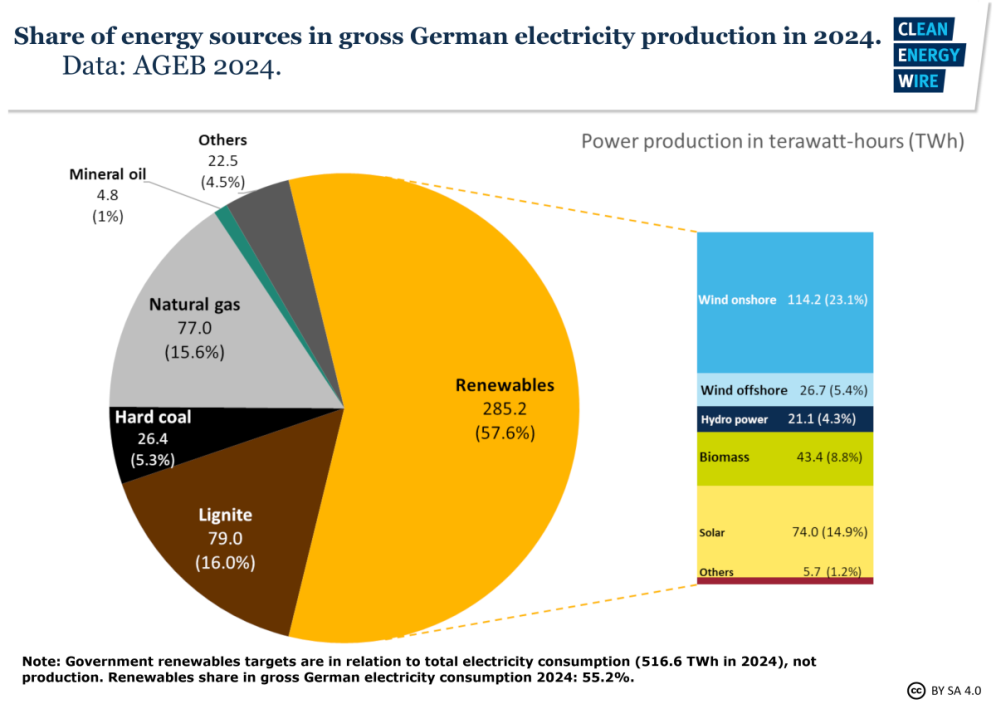
Azerbaijan, keen to achieve its green energy goals, has already started collaborating with renowned international companies such as bp, TotalEnergies, Masdar, and ACWA Power on renewable energy projects. The country’s confirmed potential for green energy is impressive, with 135 GW on land and 157 GW offshore. These figures suggest that Azerbaijan is well-positioned for future large-scale projects, offering opportunities for new partnerships with global companies.
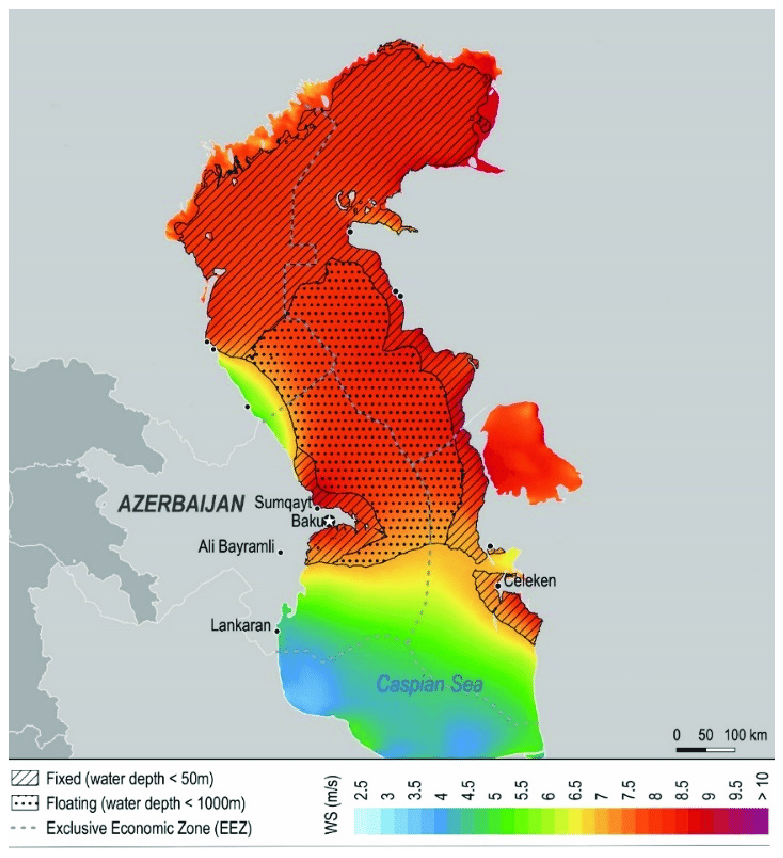
Wind power in the Caspian Sea
In recent years, Azerbaijan has also engaged in discussions with the German government and companies to strengthen cooperation in the renewable energy sector. The Azerbaijani government is eager to leverage Germany’s vast experience. For example, last year, Michael Harms, CEO of the East Business Association of Germany, led a delegation to Baku, where he met with Azerbaijan’s Energy Minister Parviz Shahbazov. The talks focused on Azerbaijan’s energy transition agenda, ongoing and planned green energy projects, and potential opportunities for renewable energy exports, including green hydrogen.
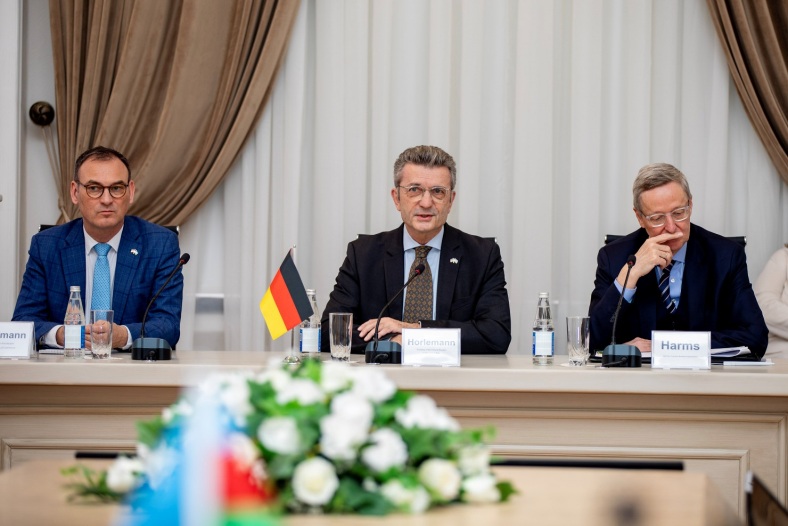
Delegation led by Michael Harms, CEO of the Eastern Business Association of Germany, Baku, February 28, 2024
During the COP29 conference, a Memorandum of Understanding was signed between SOCAR’s subsidiary SOCAR Green, Siemens Energy, and Nobel Energy to jointly develop renewable energy projects, enhance energy security, and accelerate the region's transition to cleaner energy. Also, during the conference, Minister Shahbazov met with Babel Haidebroek, President of the German Wind Energy Association (GWEA), to discuss Azerbaijan’s green energy transformation and the progress of the "Caspian-Europe Green Energy Corridor" and the "Central Asia-Azerbaijan Green Energy Corridor" projects. The two sides also explored opportunities for cooperation on offshore wind energy development and green energy corridor projects with German companies.
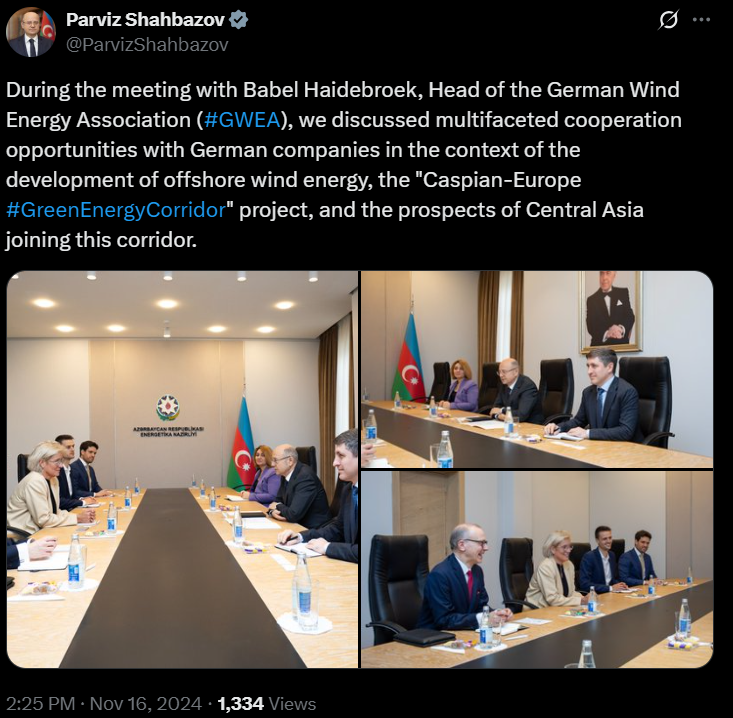
Meeting with Babel Haidebroek, President of the German Wind Energy Association
A few weeks ago, President of the Federal Republic of Germany Frank-Walter Steinmeier visited Azerbaijan, where energy-related matters were also on the agenda. President Ilham Aliyev emphasized Azerbaijan’s ambitious alternative energy plans, acknowledging the wealth of experience German companies bring to the sector.
Azerbaijan’s renewable energy projects are also strategically important for the energy security of the EU. In 2022, an agreement was signed between Azerbaijan, Georgia, Romania, Hungary, and the EU for the construction of an underwater electrical cable under the Black Sea. This cable will transport Azerbaijan’s green energy to Europe, further integrating Azerbaijan into Europe’s energy landscape.
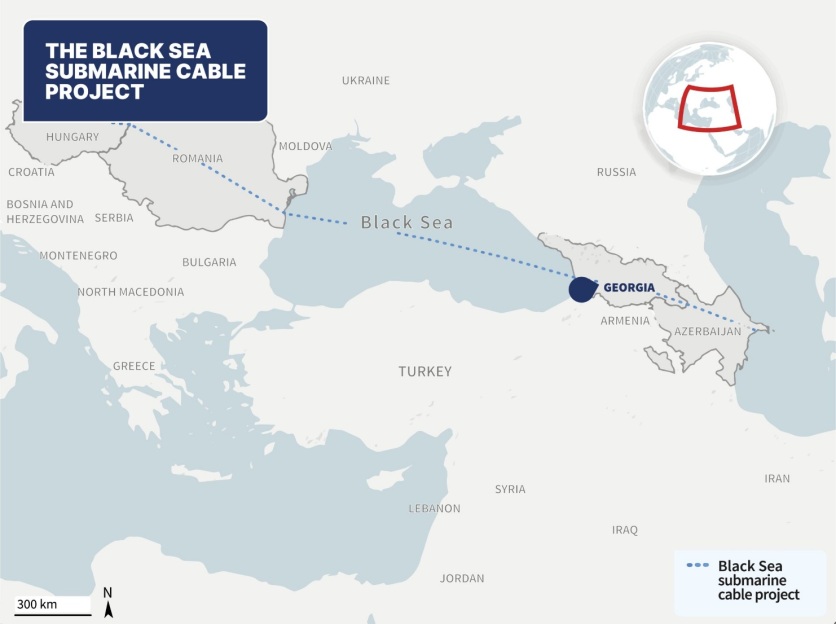
With its growing green energy potential, Azerbaijan is increasingly attracting international interest. The country is open to cooperation and investment in renewable energy projects with German companies, seeing them as reliable partners. Germany, as a leader in renewable energy, is poised to play a critical role in Azerbaijan’s green energy transition.
We spoke with Nurlan Rahimli, the technical manager of wind farms at ERG Germany, to discuss the potential of Azerbaijan's alternative and renewable energy sector and explore future cooperation opportunities with German companies.
Considering Azerbaijan's potential in alternative and renewable energy, how do you assess the opportunities for German companies to collaborate with Azerbaijan in the field of green energy?
I would begin answering this question with some statistical data. According to statistics from 2023, Azerbaijan's total electricity consumption was approximately 23,857 GWh, which is equivalent to an electricity consumption demand of about 2.72 GW. The country's installed electricity generation capacity stood at over 8.3 GW in 2023. This means that Azerbaijan already has more than twice the generation capacity it requires for consumption.
Additionally, recent research has shown that Azerbaijan has an offshore wind energy potential of around 157 GW. Of this, 35 GW is economically feasible in the short term, as it can be developed in the shallow areas of the Caspian Sea (depth <50m). If we include other renewable energy potentials such as onshore wind and solar, the total potential will be even greater. This potential electricity could be exported to Europe through existing or ongoing electricity transmission projects or various Power-to-X initiatives.
This aligns well with the expertise and technological leadership of German institutions and companies, which have decades of extensive experience in implementing green energy solutions. Germany has built one of the world’s most advanced renewable energy sectors, with strong capabilities in wind energy, solar technology, energy storage, and grid integration. However, the German market is now highly saturated, making it difficult for German companies to realize profitable projects. The experience of these companies could be applied in a highly cost-effective way to the potential of Azerbaijan's energy sector. As Azerbaijan seeks to diversify its energy mix and reduce dependence on fossil fuels, there is a real opportunity for strategic cooperation. German companies can offer technical know-how, innovative solutions, and investment models to support Azerbaijan’s clean energy transition.
Moreover, Azerbaijan's recent government initiatives to reform its energy sector and attract foreign investment - such as creating a legal and regulatory framework for renewables, launching pilot projects, and developing grid infrastructure - are positive signs that lay the groundwork for future partnerships.

What could the sharing of German expertise with Azerbaijan bring to both official Baku and German companies?
Therefore, I appeal to and encourage German companies to cooperate in Azerbaijan’s renewable energy sector. The country is entering a new phase of its energy evolution—one focused on sustainability, innovation, and long-term partnerships. There is a growing political will, backed by concrete government strategies and international engagement, to shift toward a greener economy. Last but not least, I also appeal to the government of the Federal Republic of Germany, to support and stand behind this cooperation. It will not only benefit German companies but will also benefit Germany and the European Union by reducing their energy sustainability concerns in Eastern Europe.
With mutual commitment, transparent frameworks, and a shared vision, Azerbaijan and Germany can build a successful model of green energy cooperation that could even become a reference point for other countries in the region.

